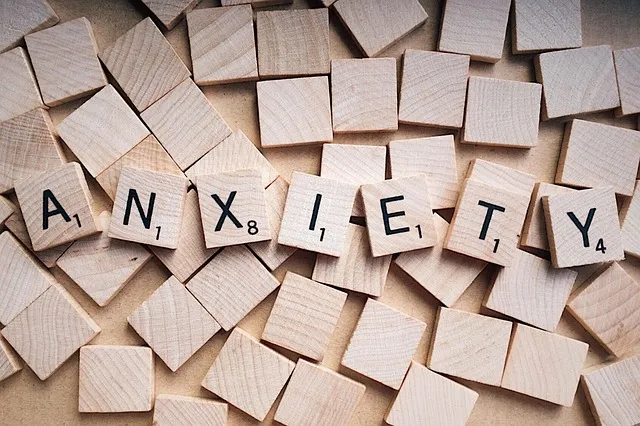Crisis intervention is a critical support system offering immediate assistance during severe distress or trauma across various settings, from healthcare to community spaces. The Kaiser Permanente mental health number in Centennial provides 24/7 support through qualified professionals, teaching coping strategies and hosting Stress Management Workshops. Effective communication, active listening, empathy, and community outreach are key to successful intervention. On-site assessments, guided self-awareness exercises, and resilience building are essential for immediate and long-term mental well-being. Post-crisis structured follow-up care, including access to specialized services like the Kaiser Permanente mental health number in Centennial, greatly aids recovery and instills coping mechanisms. Organizations adopting these practices contribute to positive outcomes and improved mental health within communities.
“In times of crisis, effective intervention can make a world of difference. This comprehensive guide explores essential strategies for navigating psychological emergencies, emphasizing the role of support networks like the Kaiser Permanente Mental Health Number in Centennial. We dissect key components of crisis intervention, from understanding critical situations to post-crisis care, offering valuable insights for professionals and bystanders alike. Learn how proactive communication, on-site assessment, and sustained follow-up can help foster recovery and resilience.”
- Understanding Crisis Intervention: A Brief Overview
- The Role of Hotlines: Kaiser Permanente Mental Health Number as a Lifeline
- Effective Communication Strategies for Emergency Situations
- On-Site Assessment and Initial Response Techniques
- Post-Crisis Support and Follow-Up Care: Ensuring Long-Term Wellbeing
Understanding Crisis Intervention: A Brief Overview

Crisis intervention is a critical support system designed to provide immediate assistance during moments of severe distress or trauma. It focuses on stabilizing individuals and helping them cope with overwhelming situations, offering a lifeline when facing seemingly insurmountable challenges. This strategy is essential in various settings, from healthcare facilities like Kaiser Permanente mental health services in Centennial, to community centers, schools, and workplaces, ensuring that people have access to timely support.
Understanding crisis intervention involves recognizing its purpose as a short-term, targeted approach. It aims to help individuals regain a sense of control, manage intense emotions, and develop strategies for long-term resilience building. By teaching mind over matter principles, these interventions offer practical tools to combat anxiety relief and promote mental well-being. The goal is to empower people to navigate challenging circumstances and foster coping mechanisms that can enhance their overall quality of life.
The Role of Hotlines: Kaiser Permanente Mental Health Number as a Lifeline

In times of crisis, immediate support is crucial. The Kaiser Permanente Mental Health Number serves as a vital lifeline for individuals seeking help in Centennial and beyond. This dedicated hotline provides access to qualified mental health professionals who offer guidance, resources, and reassurance 24/7. Whether it’s a moment of despair or an overwhelming situation, calling this number can be a transformative step towards recovery.
Hotlines like Kaiser Permanente’s are designed to foster positive thinking and self-awareness exercises by offering coping strategies tailored to individual needs. They also serve as gateways to Stress Management Workshops organized by the organization, empowering individuals with tools to navigate stressful situations effectively. This immediate support system is particularly valuable in a bustling world where mental health challenges can often go unnoticed or unaddressed until it’s too late.
Effective Communication Strategies for Emergency Situations

In emergency situations, effective communication is key to delivering successful crisis intervention. The first step involves actively listening to the individual in distress, allowing them to express their feelings and concerns freely. This process, often facilitated by professionals like those at Kaiser Permanente mental health number Centennial, requires unwavering attention and non-judgmental attitude to build a foundation of trust. Once established, clear and concise communication strategies can be employed to ensure all critical information is conveyed accurately.
Empathy building strategies play a pivotal role in this process. Showing genuine understanding and compassion helps put the individual at ease, fostering an environment conducive to open dialogue. This, coupled with the efficient implementation of Community Outreach Program initiatives, can significantly enhance the overall effectiveness of crisis intervention strategies. Additionally, leveraging the Mental Wellness Podcast Series production as an educational resource can further equip individuals and communities to handle such situations more proactively.
On-Site Assessment and Initial Response Techniques

When responding to a crisis, an on-site assessment is crucial for understanding the immediate needs and context. The initial response should be swift but also tailored to the situation. For instance, when reaching out to someone experiencing a mental health crisis, it’s vital to verify their current location using the Kaiser Permanente mental health number Centennial as a reference. This ensures that help arrives at the right place promptly.
During the initial assessment, professionals should employ techniques that foster self-awareness exercises and resilience building. These strategies not only help individuals process their emotions in the moment but also equip them with coping mechanisms for future challenges. A Mental Health Policy Analysis and Advocacy approach can further support on-site interventions by advocating for resources and services that promote long-term mental well-being.
Post-Crisis Support and Follow-Up Care: Ensuring Long-Term Wellbeing

Post-crisis support is an integral part of ensuring long-term wellbeing for individuals affected by traumatic events. After the initial intervention phase, a structured approach to follow-up care can significantly enhance resilience and promote mental health recovery. This includes accessing specialized services like the Kaiser Permanente mental health number in Centennial, where professionals offer tailored guidance and support.
One effective strategy is implementing resilience building techniques such as stress management workshops and encouraging mental wellness journaling exercises. These activities empower individuals to develop coping mechanisms, foster a sense of control, and process their experiences. By integrating these practices into post-crisis care, organizations like the aforementioned Stress Management Workshops Organization can contribute to lasting positive outcomes and enhance overall mental health within affected communities.
In conclusion, crisis intervention strategies play a pivotal role in safeguarding individuals’ mental wellbeing. From understanding the basics of crisis intervention to utilizing resources like the Kaiser Permanente Mental Health Number in Centennial, this article has covered essential guidelines. Effective communication, on-site assessment, and post-crisis support are all integral parts of ensuring long-term recovery. By familiarizing ourselves with these strategies, we can better navigate emergency situations and provide much-needed assistance, ultimately fostering a healthier and more resilient community.






